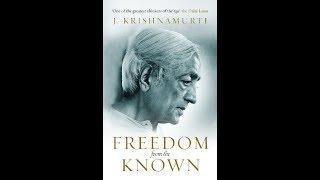https://www.patreon.com/GnosticInformant
Please Consider joining my Patreon to help finding scholars to bring on. Any amount helps me. Thank you existing Patrons.
Jason Reza Jorjani:
@prometheism3174
Lovers of Sophia:
https://www.amazon.com/Lovers-Sophia-Jason-Reza-Jorjani-ebook/dp/B081NYMT3H
Plato's so-called unwritten doctrines are metaphysical theories ascribed to him by his students and other ancient philosophers but not clearly formulated in his writings. In recent research, they are sometimes known as Plato's 'principle theory' (German: Prinzipienlehre) because they involve two fundamental principles from which the rest of the system derives. Plato is thought to have orally expounded these doctrines to Aristotle and the other students in the Academy and they were afterwards transmitted to later generations.
The credibility of the sources that ascribe these doctrines to Plato is controversial. They indicate that Plato believed certain parts of his teachings were not suitable for open publication. Since these doctrines could not be explained in writing in a way that would be accessible to general readers, their dissemination would lead to misunderstandings. Plato therefore supposedly limited himself to teaching the unwritten doctrines to his more advanced students in the Academy. The surviving evidence for the content of the unwritten doctrines is thought to derive from this oral teaching.
In the middle of the twentieth century, historians of philosophy initiated a wide-ranging project aiming at systematically reconstructing the foundations of the unwritten doctrines. The group of researchers who led this investigation, which became well-known among classicists and historians, came to be called the 'Tübingen School' (in German: Tübinger Platonschule), because some of its leading members were based at the University of Tübingen in southern Germany. On the other hand, numerous scholars had serious reservations about the project or even condemned it altogether. Many critics thought the evidence and sources used in the Tübingen reconstruction were insufficient. Others even contested the existence of the unwritten doctrines or at least doubted their systematic character and considered them mere tentative proposals. The intense and sometimes polemical disputes between the advocates and critics of the Tübingen School were conducted on both sides with great energy. Advocates suggested it amounted to a 'paradigm shift' in Plato studies.
The expression 'unwritten doctrines' refers to doctrines of Plato taught inside his school and was first used by his student Aristotle. In his treatise on physics, he wrote that Plato had used a concept in one dialogue differently than 'in the so-called unwritten doctrines.' Modern scholars who defend the authenticity of the unwritten doctrines ascribed to Plato lay stress on this ancient expression. They hold that Aristotle used the phrase 'so-called' not in any ironic sense, but neutrally.
The scholarly literature sometimes also uses the term 'esoteric doctrines.' This has nothing to do with the meanings of 'esoteric' common today: it does not indicate a secret doctrine. For scholars, 'esoteric' indicates only that the unwritten doctrines were intended for a circle of philosophy students inside Plato's school (in Greek, 'esoteric' literally means 'inside the walls'). Presumably they had the necessary preparation and had already studied Plato's published doctrines, especially his Theory of Forms, which is called his 'exoteric doctrine'.
Modern advocates of the possibility of reconstructing the unwritten doctrines are often called in a short and casual way 'esotericists' and their skeptical opponents are thus 'anti-esotericists.'
The Tübingen School is sometimes called the Tübingen School of Plato studies to distinguish it from an earlier 'Tübingen School' of theologians based at the same university. Some also refer to the 'Tübingen paradigm.' Since Plato's unwritten doctrines were also vigorously defended by the Italian scholar Giovanni Reale, who taught in Milan, some also refer to the 'Tübingen and Milanese School' of Plato interpretation. Reale introduced the term 'protology,' i.e., 'doctrine of the One,' for the unwritten doctrines, since the highest of the principles ascribed to Plato is known as the 'One.'
The case for the unwritten doctrines involves two steps. The first step consists in the presentation of the direct and circumstantial evidence for the existence of special philosophical doctrines taught orally by Plato. This, it is claimed, shows that Plato's dialogues, which have all survived,[citation needed] do not contain all of his teaching, but only those doctrines suitable for dissemination by written texts. In the second step, the range of sources for the supposed content of the unwritten doctrines is evaluated and the attempt made to reconstruct a coherent philosophical system.
#gnosticinformant #platonism #esoterica
- Category
- Spirituality/Religon





